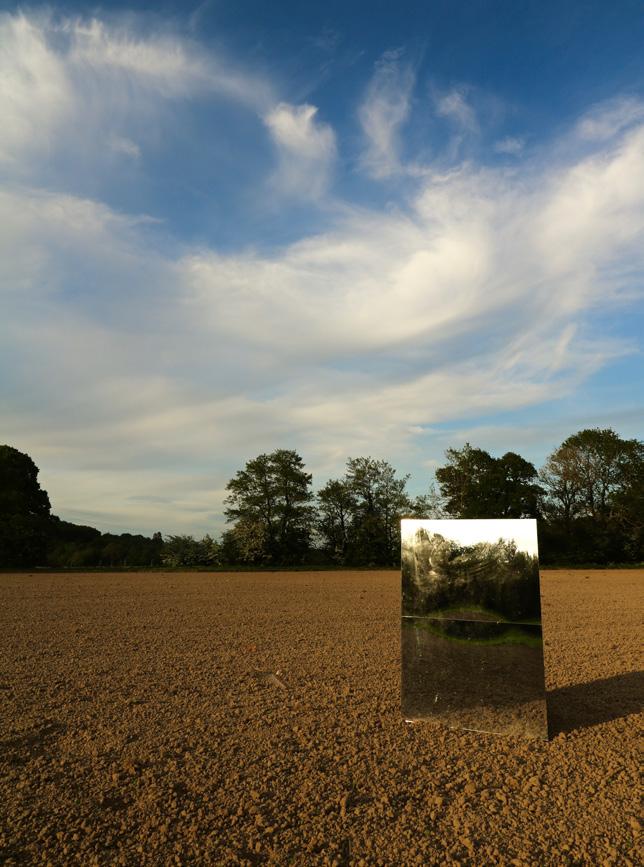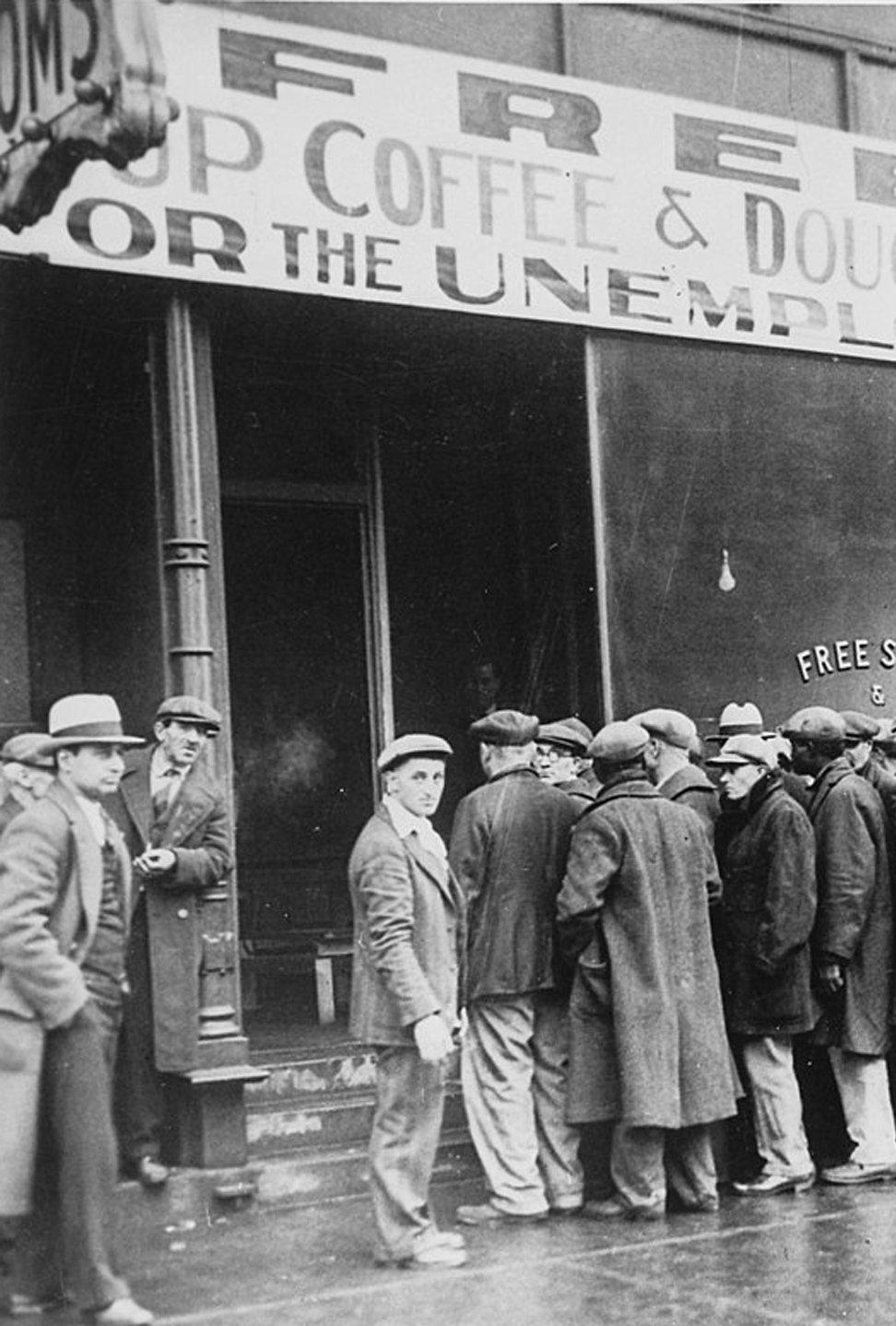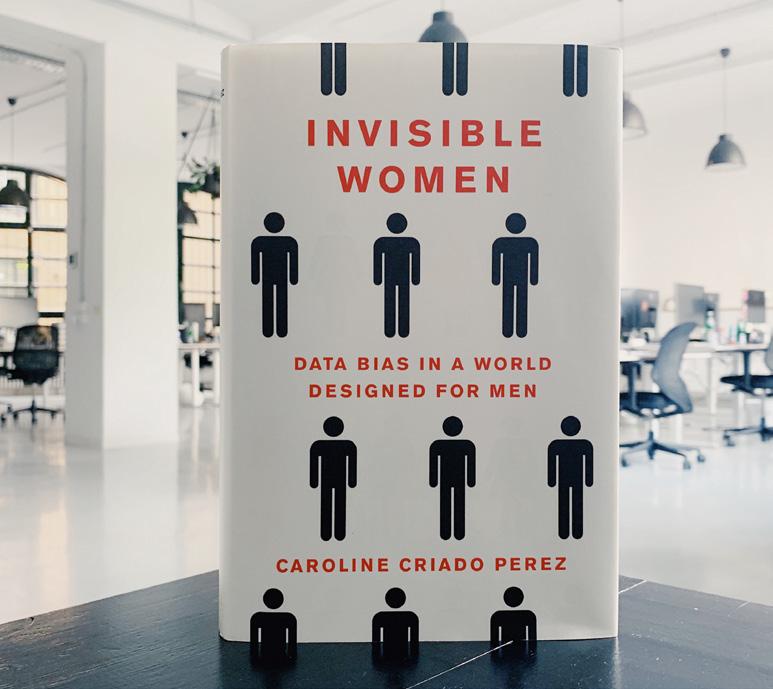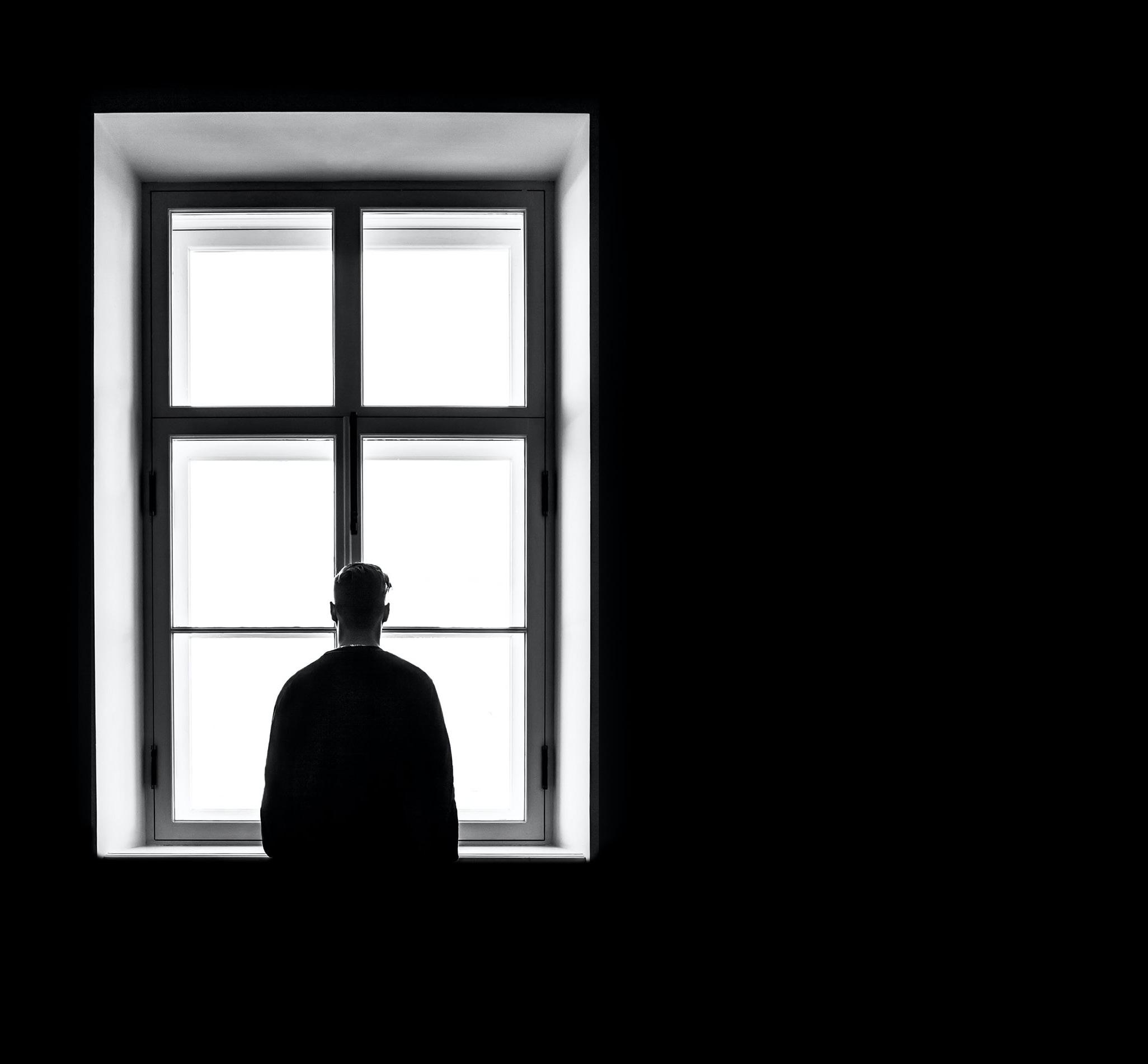
19 minute read
An Evening with Mr Richardson Matt Bryan
an evening with MR RICHARDSON
Ifirst met the infamous character that is Mr Richardson at the Gunwharf bowling alley nearly two years ago - a rather banal and demeaning location for a man of such flamboyant distinction. Nonetheless, as someone new to the Sixth Form, the image of a man gliding across the varnished floor in a pair of brogues with hair slicked back, wearing a floral print shirt that had been through the Cath
Kidston factory at least twice, was certainly an interesting one. As he knocked down pin after pin, putting his new tutor group to shame in the process, I thought to myself: if Elvis was an English teacher, he was standing right in front of me.
Mr Richardson was my tutor through
Lower Sixth and an encouraging figure when it came to keeping me, a scientist, writing - as he was to anyone. An interview with him way back in October 2018 was my first blog post, and he has subsequently read all of my drafts for the magazine in their various states of completion. I recall that, after one of his and Mr Doyle’s frequent table football clashes in Latter Common Room, he shook my hand and congratulated me on my first article. We all know Mr Richardson as a caring figure who sent out cards to all Point editors after a successful issue and whose contributions will be greatly missed as he retires.
Mr Richardson has been a stalwart of
Portsmouth Point since its inception in 2009, a founding member and icon of the school’s writing community. He is unmistakably one of
‘the Godfather’ figures at PGS, so I came to him on the day of his retirement from teaching to ask him for forgiveness, and for a favour - an interview to chronicle his time here in his own exuberant words. Matt Bryan YEAR 13
Where do you think you will be and what do you think you will be doing this time next year? That’s a great question. When you thought of this question neither you nor I could have guessed what would happen in March, so what next year will look like is very hard to predict. I shall be retired, though, and I hope, at the moment, that all will be as it was before, except that we clean our hands more often and make the most of being in groups of as many as we like!
How far back does your connection with Portsmouth go, and for how many years have you regretted living here? Ah, Pompey. I’m a recent convert. It can be an acquired taste. I will never warm to Commercial Road, for instance. I first visited the city in the 60s, I think. Dad was in the Merchant Navy during the war and he took us all to a Navy Open Day in the dockyard. We walked around inside a couple of ships but it was so crowded (ah, remember them, crowds?) that we went into the city and I sketched the Guildhall. I wish I had sketched the Tricorn Centre instead. Far more iconic and a lot easier to draw, too! And now it’s all gone. But there is so much to love here too. The stretch from the entrance to Portsmouth Harbour to Langstone is a great glory, and to be able to walk every day along the front there is a great joy. I come from the heart of the heart of Sussex, land of oak and (once) elm, of secluded dells and little woods, small fields and few people, a hidden land of the Weald, where iron was forged and footpaths linked villages and beamed pubs, dotted with spires and towers, nothing to quicken the blood, no dramatic heights or sweeping plains, no majestic falls or broad lakes, no quaint harbours or imposing monuments, perhaps its finest gift to the world being a little bridge in the Ashdown Forest across a tiny stream where once for real but, much more importantly, in fiction a few tiny sticks and then a large heffalump floated downstream. A land of lost content, of quiet and small pleasures, nothing showy or puffed up with self-importance. But here in Southsea are the wide-open spaces, the huge skies, the sweep of the Solent and history at every turn, with (well, once, at any rate) bars and restaurants in all directions. The pull of the tide was always there back in Sussex, 20 miles from the coast. but always whispering to me, and now I am right by it and so happy.
You are well known about PGS for being a man of impeccable taste, so which Star Wars prequel is your favourite? Dear old Star Wars. Is that still going? Bless it. The simple answer is: none of them. The utter beauty of the very first film back in 1977 was that it was total tripe: a hodge-podge of ancient serials that used to be screened incessantly every Saturday morning in local cinemas, with preposterous special effects, derring-do heroes swashbuckling their way across immense space and encountering aliens in ludicrous costumes, with satisfying exotic weapons and a huge explosion at the end. It was, therefore, marvellous and completely disposable. Even the gentle fade to black between scenes was pitch perfect.
And for years that was that. A lovely piece of tomfoolery, meaning nothing. And then, a ruddy second film! And a third. And, of course, the rest of it all. Now it’s a different kind of meaninglessness. Once just a lark, now, with its series of alternative histories and burgeoning back stories, it has become burdened by its own weight. Leave it alone, please. So, also not a fan of the Disney+ series, obvs.
On a similar line of questioning, as an iconoclast of fashion, what is the appropriate attire for a smart-casual event? Well, at the moment I am wondering what an iconoclast of fashion actually means or what it says about me, but I fondly recall wearing a pink sou’wester, a donkey jacket and luminous green wellies when I was 19, and being made to stand outside of shops by my friends as they were embarrassed. Probably rightly. Smart? Casual? I felt I was both. But can they remember what they were wearing back then? I suspect not, so that must mean something.
If you were hosting a dinner party, who would you hire as a maître d’ and how many canapés would you allocate per person? Well, as I am sure you know, one never serves canapés at a dinner party. Frightfully infra dig.
What is your fondest memory of tutoring in Latter for the past X years? There are many, and I really should pay tribute to Mr Elphick-Smith and Mr Doyle for making my time as a tutor so enjoyable. Both, in their very different ways, managed to make the ‘feel’ of Latter so special. I really enjoyed the Showcases that we did, though, especially the very first one which we held in the Rotunda. Lots of music and acts, with a real sense of camaraderie. The role of the House system in PGS is always changing, though, and it has certainly changed a great deal in the past year. I think it will change again, and although I won’t be part of that, I do hope that the Houses rise once more, ridiculous flags and all! What is the most ‘English teacher’ literature interpretation you have read in your time here? Everything that I have ever encountered can be interpreted through English literature!
If you could bring Prince Andrew to any gig of the last century as his indestructible alibi, what would it be and why? I bet there is something here, but I can’t make anything of it. Which one is Prince Andrew, again? As for gigs, well, there have been a few, but my first one ever stands out for me amongst all the others. Quite what the Prince would have made of it is hard to fathom, as he would have only been 10, although his Auntie Margaret might well have been there, so who knows? It took place only a few miles from one of his mother’s residences, so he could have nipped home from East Aston Farm for afternoon tea, perhaps with nanny? Handy. The gig? Well, Andy and I were born almost exactly 5 years apart, which, if you Google that (me, of course: I doubt you’ll find much on the Andster) means that he was ten, I was fifteen and it was 1970. East Afton? Just outside Freshwater, and his mother’s residence? Osborne House. All, as you are no doubt aware by now, on the Isle of Wight. Why 1970? Well, a small matter of the third Isle of Wight Festival (and the last for a bit too). It was not a quiet affair: 600,000 - 700,000 attendees, for instance. Why such a huge range in those figures? Largely because it was a ticket-only event, but by the Saturday the fences had been broken down and it became, for those who hadn’t already paid, a free festival. What a brilliant first gig, too. Andy enjoyed himself hugely.
I got a chance to see and hear, in closeup and with brilliant sound, acts such as The Who, Free, Miles Davis, The Doors and finally, the late great Jimi Hendrix. What a line-up. It was a brilliant event but also a terminal one for some: the festival itself was banned, only reopening in 2002, and two of the more notable performers, Hendrix and The Door’s Jim Morrison, died the following month and a year later
respectively. But it will live long in the memory, of course. Not in mine, however. All my memories have come from reading about it, listening to recordings and watching extracts from filmed performances. I never went. Andy carried on his life wherever he was, unscathed by any contact with a great deal of the very unwashed and blissed out. Although, I suspect little of the latter went on for most, given how limited the options were at that time: only one stage, no vendors, limited access to nearby facilities (no Portakabin loos!) and everyone functioning only with cash. As for getting there, most would have walked once they landed via ferry and once they arrived they would not have had a universally positive welcome. The natives were largely hostile to the event, and in fact they made sure that the festival would not return by getting an Act of Parliament, no less, to prevent any festival in the future. Given the relative hair lengths and clothing of the trippers and the residents, it would have been easy to tell the difference, and the noise, the waste and the sheer volume of attendees would certainly have been an issue. I remember well how hard it was to get there: buses were packed and infrequent, taxis non-existent and roads narrow and seemingly endless for such a small place. It wasn’t hard to find: you just
followed everyone else who looked just like you, and there were lots of them. I didn’t get there until the Saturday, and I didn’t get there at all. The weather was decent, though, with none of the Glastonburytype mud. Good thing I didn’t bother wearing those fluorescent green wellies. Not that I needed them anyway, not being there. So, it was great and memorable and I didn’t even go. So how does it qualify as my first gig (and perhaps Andrew’s)? Because I was fired up by the idea of going, and told my mum that I was going and she said I couldn’t and that was the end of that. Really committed to my dreams. But what a first gig it was. Oh, and on a side note, although I saw Hendrix at his last gig, except not actually, I have another beingclose-to-Hendrix moment. I was talking to a previous PGS Librarian, Jo Godfree, who told me that she had been shopping in the King’s Road in Chelsea around about 1968 and bumped into a person while looking at clothes in a boutique, and then realised she had just made contact with Hendrix. Both being very polite, they each apologised, of course. Given the fashions of the time, they could well have been reaching for the same item of clothing. I shook her hand, thus touching, by proxy, the wild man of pop himself. So, two castiron encounters with a legend.
Malbec or Cabernet Sauvignon? Malbec if Argentinian, I have found.
The Beatles or Gerry and the Pacemakers? ‘I Like It’, ‘How Do You Do It?’, ‘You’ll Never Walk Alone’ and delightful ‘Ferry Cross the Mersey’: brilliant. They were early competitors for the Beatles, too, and one single, ‘How Do You Do It?’ was recorded by Beatles’ producer George Martin at Abbey Road studios. Nevertheless, the Beatles.
Where might a fellow purchase a high-quality silk cravat? Well, obviously you wouldn’t buy a lowquality silk cravat, would you? They may be what sustains the meagre income of Primark and such, but one has to admit that the silk is not quite “there” as it were. One could, of course, visit the blowsy charms of London’s Jermyn Street, but they are hardly any better when it comes to quality. No, the finest, la crème de la crème, the dog’s bananas, can only be found in a tiny, unprepossessing shop just off the eastern end of Albert Road. There, the silk worms are sourced from the finest to be found in the world, and they are set to, spinning out their silk in the perfect conditions that have made the road the hallmark of quality that the world has come to admire. Once the silk has been teased out by the strapping youth of Pompey, the delicate colours are applied according to a closely-guarded process, jealously maintained by generations of Southsea silk makers. Such is the demand, one has to have one’s name entered onto a list, the length and time involved of which makes the lists for prospective pupils at the finest public schools seem like mere bagatelles. Oh, and as a side-line they make bagatelles, too.
Has anyone ever told you that you look like a young public-schooled Harrison Ford? Genuinely that’s a new one! In the past, the comparisons have been with Jules Holland (marginally a slightly better pianist) and with Bryan Ferry. All hugely odd and flattering, and I will take Harrison Ford too, thank you so much.
Do you have any plans for the first year of your gap year (retirement)? Not taking it easy.
Are you planning to find yourself in the Andes? I’ve heard the llamas are lovely. Roasted, perhaps?
Do you have any opinions on the life and work of Bill Oddie? The Goodies were just delightful.
How far do you agree with Plato’s image of the cave as a metaphor for education? Is it? I haven’t thought of it like that. Perhaps I will have time to ponder about that on the island. But it is a dynamic and brilliant concept for anyone to have created, so he is rightly still talked about. How many combinations of flamboyant ties, exquisite jackets and daring shoes could you create from your wardrobe? I am not sure that even your brilliant maths skills could help calculate such a massive number.
If you were stranded on a desert island, what consistency of sand would you prefer, in an ideal world?
Ah, now you’re asking the right question, well sort of. I have long had the fantasy of being on Desert Island Discs, and here it is, right now! So, thanks, Roy, for asking. Here we go.
All of the following are just ones that come to mind: I could substitute all for something else. But I think that I would want music that is both great in itself but also representative of differing strands of music, and for different purposes.
My first choice would be something from the Beatles. They were central to my early life, so I would like to choose something that is earlier in their oeuvre rather than later. Of course, there is such a variety on offer, but I choose ‘A Hard Day’s Night’. I love the opening chord, the infectious singalong lyrics and the fact that the title apparently came from a chance remark by Ringo Starr as a joke, and it stuck.
If the first is the Beatles, the second needs to come from The Rolling Stones. The two groups were one another’s yin and yang, x and y axes, devil and the deep blue sea: you can’t have one without the other. By the time of the release of the first song in this list, the contrast between them embodied all popular music, and they dominated the airwaves and record sales, both in the UK and abroad. But rather than a 1964 song, I choose ‘Brown Sugar’, the essence for me of their music and would allow for very inaccurate but deeply satisfying air guitar.
My third would be the first of two songs that connect me with other people. This one is actually one my father used to play very often, and he absolutely loathed it! He played in the band of the Horsham branch of the Royal British Legion, and it was a regular feature on bandstands across the region: ‘Sussex By The Sea’. I think he only said he disliked it because
(a) he liked being a bit cantankerous, very unlike me, and (b) because it was asked for a great deal at concerts, it being usually in Sussex that they played, or representing the county if playing elsewhere. There is no decent version on the internet that quite does it justice: the Coldstream Guards’ and the Royal Marines’ versions are rather too precise and cold feeling for me (although there is a version by the East Grinstead band that is better), so I will have to do with my memory of those concerts. Good enough, though.
My fourth would represent classical music. I love a great deal of it, but am pretty restricted in choices. Beethoven? Mozart? Either would be amazing. But I would like to carry on the theme thus far of Britishness, so I came down to two very familiar pieces, between Elgar’s ‘Cello Concerto in E minor’ and Vaughan Williams’s ‘A Lark Ascending’, and of the two I choose the latter, just because it is so redolent of that Edwardian age, somehow of the poetry of AE Housman, English landscapes and a sense of peace mingled with loss. Brilliant, and with a lovely local connection, I discovered, which is that it was inspired by a poem by the writer George Meredith, who is famous, around these parts anyway, for having been born in Portsmouth but also for being so embarrassed by this awkward fact that, when asked where he came from, he answered ‘just outside Petersfield’!
My fifth choice is ‘Woodstock’, by Joni Mitchell. The first version I heard, along with most people at the time, was by Crosby, Stills, Nash and Young, but by choosing this original version I can smuggle in West Coast countercultural music and retain Mitchell’s glorious voice at the same time. It’s a fine song too.
The sixth represents black soul and R’n’B of the sixties and early 70s. No single record could ever do justice, but one will have to suffice, so I at least should choose a relatively long track. I was tempted to choose ‘Maggot Brain’ by Funkadelic, a psych-drenched paean to easeful death, driven by an extraordinary Eddie Hazel guitar solo. But perhaps that might be a little too down for a desert island, so instead I choose the uptempo cheerfulness of a child trying to cope with the concept of a father having deserted the family. Well, OK not uptempo and not cheerful: ‘Papa Was A Rolling Stone’ is the song, and it exemplifies the reach, experimentation and challenge of popular music at the time. Also, I like the echo in the title of Bob Dylan’s ‘Like A Rolling Stone’, which surely should be included in this list, and perhaps would have been if I started over again.
Record number seven is another record that is inspired by someone else, this time: my wife; it is her favourite, being Lesley Gore’s ‘You Don’t Own Me’ (you can hear it as the music for the Armani perfume Sí). I like it too: it reminds me of many fine female singers of the 1960s with strong voices and a constant fight against a male-dominated industry, such as Dusty Springfield and Cher, so the lyrics are particularly pertinent.
Record number eight choice I need to make in order to represent all jazz: impossible, but the record for me is the opening track on the live album Miles Davis at Carnegie Hall, namely ‘So What’. Rather than the studio album version from the iconic album of the same name, this version of ‘So What’ is exhilarating. It is well-nigh impossible to prevent yourself from tapping your foot once it begins, but it is a real challenge for anyone to sustain that pace of tapping for the twelve minutes’ duration. It is also a wonderful demonstration of the lyricism, complexity and improvisational skillfulness that jazz can showcase, all in one take. Breathtaking.
If I only had one choice: ‘So What’. It is a masterpiece. End of.
My book, not including the Bible and Shakespeare, (which apparently are always to be found on desert islands, so worth bearing that in mind when you next find yourself on one) has to be Charles Dickens’s David Copperfield. With only one choice for a book, this does at least contain a great deal. It is reasonably long (358,000 words according to Google), full of great humour, pathos, dozens of great characters, a glimpse of history but also a glimpse of the working of the author’s mind too (it was his favourite), and, above all, exquisite writing. One also gets a luxury item, and mine would be pen(s) and paper. I could write, I could draw, I could even waste time with origami. I absolutely know that I would never be able to recreate them on an island. The rest I might be able to in my head, after a fashion, but I would die without those items. (That’s all assuming that I am not allowed to have my wife as a luxury item, that is.)
What is your go-to move when it comes to noughts and crosses? Top left corner, although that always also means I cannot win. Or, reading the novel again, now that I have seen the TV version.
And finally, what do you hope is your legacy at PGS? One thing I know is that one rarely if ever leaves a legacy behind, and if one does as a teacher it is a very short-lived one. Schools move on relentlessly, caught up in their own thoughts and needs, and past actions are almost never recorded or, if they are, even less celebrated. Perhaps of everything, my involvement with the Leonardo Poetry competition might count: it has been an absolute pleasure to run it for 13 years, and so many great writing moments have come out of that wonderful event.
I do know that I will be remembered by pupils: I know that because I can remember teachers from my primary school days, and everyone I have ever met can also list names, probably of people long since dead. We have an impact, for good or ill, and the best I can hope for is that some of those whom I have taught since 1984 might have a fleeting memory of me, and I further hope that it won’t be too awful for them.










